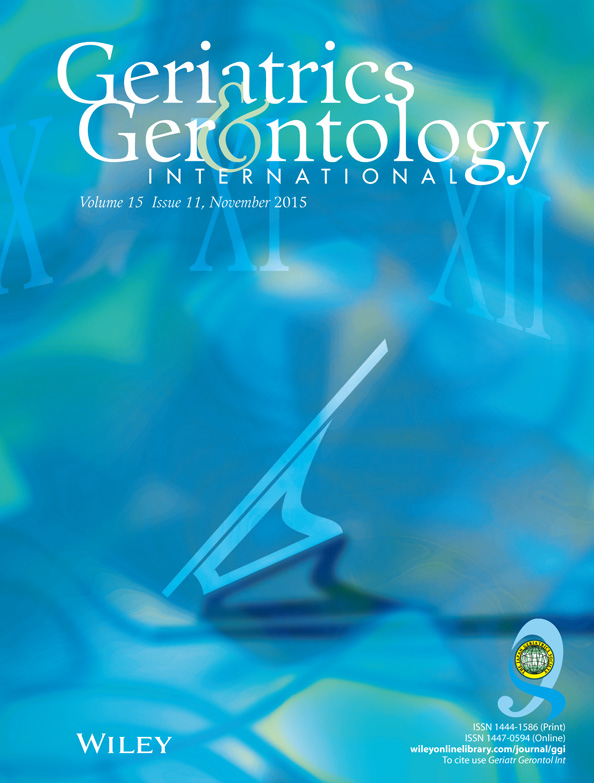Observational cohort study on correlates of mortality in older community-dwelling outpatients: The value of functional assessment
Abstract
Aim
To analyze correlates of mortality with admission features/factors in older community-dwelling outpatients.
Method
This is an observational cohort study including 608 patients aged >60 years admitted to the geriatrics outpatient clinics of a university hospital. On admission, demographic characteristics, history of smoking-alcohol consumption, individual comorbidities, individual drugs, number of comorbidities, number of drugs and the components of comprehensive geriatric assessment (functional status, nutritional status, depression and cognition screening) of the patients were recorded. Survival status was assessed through the related official website. The relationship between mortality and recorded parameters were analyzed individually by univariate analyses. Consequently, stepwise forward Cox regression analysis was carried out to detect independent correlates for mortality (for those variables statistically significantly related to mortality.)
Results
The mean age was 73.8 ± 6.9 years. 66.6% of participants were female. The mean follow-up time was 40.4 ± 25.3 months. The mortality rate was 17.8%. Correlates of mortality were calculated using univariate analysis. They were age, sex, nutritional status, activities of daily living (ADL), instrumental ADL, diabetes mellitus (P < 0.001 for all), suspected dementia (P = 0.002), hyperlipidemia (P = 0.048) and total number of diseases (P = 0.025). Independent correlates of mortality were advanced age (HR 1.10, 95% CI 1.06–1.13; P < 0.001, low ADL score (HR 1.22, 95% CI 1.12–1.32; P < 0.001), the presence of diabetes (HR 2.64, 95% CI 1.78–3.91, P < 0.001), male sex (HR 1.68, 95% CI 1.13–2.49; P = 0.01) and suspected dementia (HR 1.51, 95% CI 1.02–2.22; P < 0.05).
Conclusion
In the present study – taking many factors into consideration – the variables associated with mortality were advanced age, low ADL score, presence of diabetes, male sex and suspected dementia. Functional status emerged as the second most significant factor associated with higher mortality – after advanced age. The present study highlights the importance of functional assessment in geriatric outpatient clinics. Geriatr Gerontol Int 2015; 15: 1219–1226.




